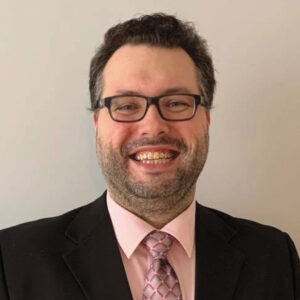
Jonathan Pratt, PhD, MBA
Dr. Jonathan Pratt is the Executive Director of Regroupement Québécois des Maladies Orphelines (RQMO). As the Executive Director of the RQMO for over two years, Jonathan makes it his duty to elevate the discussion and deal with all the issues related to diagnosis, management, follow-up and listening to people with rare diseases in Quebec. He is a positive changemaker who loves co-creation to find concrete solutions. With a doctoral and postdoctoral studies, Jonathan has acquired a lot of experience in scientific research (8 years) and more specifically in the molecular genetics of human cancers. (Brain, Skin, Blood, etc.) In addition, Jonathan has more than 15 years of experience in the field of recreation and particularly in the training of lifeguards and instructors in swimming/rescue/first aid, including 4 years as a manager.
Here is what he has to say about rare diseases:
In your opinion, what are some of the biggest challenges facing the rare disease community today?
“From what I heard from many patients, the biggest challenges are as follows : 1- The vast majority of healthcare professionals are not fully aware, don’t have the knowledge or simply don’t have the right training about rare diseases. So, many patients have to see too many professionals before having a diagnostic or being taking in charge appropriately. 2- To have access to healthcare professionals who can listen to the patients (or their caregivers) and work with them as a team. 3- To have access to more mental health support services and a better access to genetic services. 4- To have more financial support for rare diseases research projects and to implicate more patients in research projects.”
What are specific areas within the rare disease landscape that particularly excite you and why?
“My vision for the rare disease community is that one day, every patient will have all the tools and the support they need to be able to fulfill every need they have. So, I am particularly interested in working with as many people/organizations as possible in order to improve the development of tools to empower the patients and their families, to improve the training of all healthcare professionals and to allow a better access to the mental health services. Everyone who has a rare disease didn’t ask for it and should be able to receive the best care and support services and be well treated. “
How would you describe yourself in one sentence?
“I’m passionate about everything I do in life, I am always positive, and I love to help people reaching their full potential and accomplishing their objectives. I want the best for the rare disease community.”

